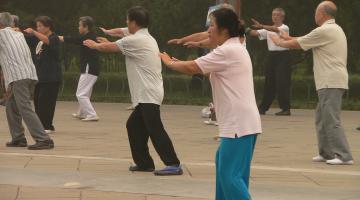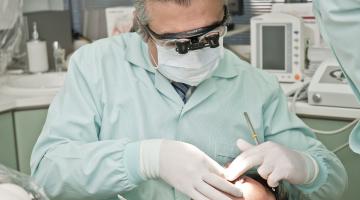5 Health Concerns You Should Address before You Travel to Asia

Asia is a densely populated region with widespread poverty and limited access to health services combined with a lack of universal healthcare. In this environment, communicable diseases are prevalent and regional pandemics are frequent. It’s important for travelers to be aware of these risks before traveling to Asia so you can take steps to protect your health. The CDC recommends that you check the latest updates on vaccinations and other precautions before traveling abroad, especially if you’re going to an underdeveloped area like much of Asia. Prior preparation will not only help keep you safe while traveling but also reduce the chances of contracting malaria or dengue fever. Here we discuss five key health concerns that travelers should address before they travel to Asia.
Malaria
The most common and serious ailment among travelers to Asia is malaria, which is caused by mosquitoes that carry the Plasmodium parasite. The risk of contracting malaria is especially high in sub-tropical and tropical areas, which includes the majority of South and Southeast Asia. The best way to prevent malaria is to take prophylactic anti-malarial medication before and during your trip. If you’re visiting rural and tropical areas in Asia, you should consider taking anti-malarial medication regardless of your travel itinerary. The main anti-malarial medications include mefloquine (Lariam), atovaquone-proguanil (Malarone), doxycycline, and the newly FDA-approved halofantrine. You should talk with your doctor about the best anti-malarial medication and dosage for you.
Food Safety
Food safety is another important health concern when traveling to Asia. The most common food-borne conditions in the region are traveler’s diarrhea, hepatitis A, and typhoid. You can reduce the risk of contracting these diseases by washing your hands regularly with soap, especially after using the toilet. Traveler’s diarrhea is the most common travel-related ailment, so it’s advisable to drink only bottled water and eat in reputable restaurants. Hepatitis A is a viral disease that is transmitted through water and food. It’s associated with poor sanitation, and the virus can survive for several weeks outside the body. You can protect yourself from hepatitis A by washing your hands thoroughly before eating and drinking. Typhoid is caused by a bacterial infection that is contracted by consuming food or water contaminated with fecal matter. To reduce the risk of contracting typhoid, drink only bottled water and eat in reputable restaurants or hotels. You can also reduce your risk of contracting food-borne diseases by taking probiotics and eating foods that are rich in probiotics, such as yogurt and kefir.
Dengue and Other Insect-Borne Diseases
Dengue is an insect-borne tropical disease that is endemic in Southeast Asia. You can reduce the risk of contracting dengue by using insect repellents and wearing long-sleeved clothing. Insect repellents are widely available in Asia, so you can easily purchase them while traveling. Insect-borne diseases can be severe and even life-threatening. You can reduce the risk of contracting these diseases by sleeping under a mosquito net, using insect repellents, and wearing long-sleeved clothing. You should also use insecticides to treat clothing and shoes before putting them on. To reduce the risk of contracting other insect-borne diseases like Japanese encephalitis and West Nile virus, you should avoid going into areas with lots of mosquitoes and ticks.
Traveler’s Diarrhea and Food Poisoning
Traveler’s diarrhea is one of the most common travel-related ailments in Asia. It can be caused by a number of factors, including poor hygiene, drinking contaminated water or eating contaminated food, a change in diet, and stress. You can reduce the risk of contracting traveler’s diarrhea by frequent hand-washing with soap, drinking only bottled water, eating in reputable restaurants, avoiding food that might be contaminated (e.g., raw fruits and vegetables, ice cubes), and taking probiotics. Food poisoning is another common travel-related ailment, and it occurs when food is contaminated with pathogens such as bacteria or viruses. To reduce the risk of contracting food poisoning, avoid eating raw fruits or vegetables and do not consume uncooked or unpasteurized dairy products.
UV Radiation Exposure
Asian skin is more sensitive to UV radiation than Caucasian skin. In addition, Asian UV rays tend to be stronger than those in the West. This is due to the different amounts of ozone in the atmosphere. You should protect yourself from UV radiation by wearing long-sleeved clothing and wide-brimmed hats. Sunscreen is another important protection against UV radiation, but make sure to use a high SPF product that protects against UVA and UVB rays. You can also use sunglasses that offer UV protection.
Bottom Line
Asia is a culturally diverse continent with many unique travel destinations. It’s important to be prepared for health concerns when traveling to Asia. Besides, you should consider installing apps on your mobile phone to help your trip. For example, in order to access health information, you might need a VPN for China (好用的梯子) to unblock websites such as Google in China. We hope the tips offered in this article can help you enjoy your trip to Asia!
More to Read:
Previous Posts:







